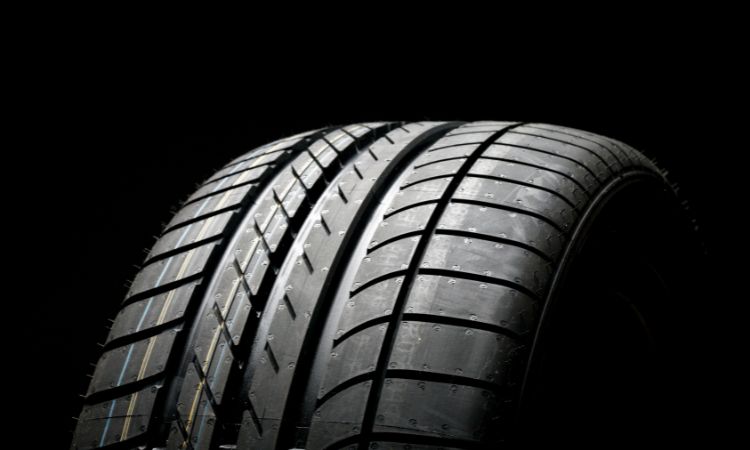Education
Choosing the Right High-Performance Wheels for Your Vehicle

I. Types of High-Performance Wheels
To kick things off, let's delve into the world of high-performance wheels and understand the different types available. Each type comes with its unique characteristics, advantages, and disadvantages. Here are some of the most common types:- Alloy Wheels: Alloy wheels are popular due to their lightweight and stylish designs. They offer better heat dissipation and are often favored for their aesthetics.
- Steel Wheels: Steel wheels are known for their durability and affordability. They are commonly used for winter tires and heavy-duty applications.
- Forged Wheels: Forged wheels are a premium choice, known for their strength and weight reduction. They are often used in high-performance and sports cars.
- Carbon Fiber Wheels (if applicable): Carbon fiber wheels are relatively new but gaining popularity for their lightweight and high-strength properties.
II. Vehicle Compatibility
Once you've familiarized yourself with the types of high-performance wheels available, it's crucial to consider the compatibility of these wheels with your vehicle. The wrong wheel size, bolt pattern, or offset can lead to various issues, including poor handling, tire wear, and even safety concerns. The compatibility checklist includes:- Wheel Size: Choose a wheel size that matches your vehicle's specifications. Oversized wheels may require modifications or may not fit at all, leading to complications.
- Bolt Pattern: Verify the bolt pattern of the wheels to ensure they align with your vehicle's hub. Mismatched patterns can result in mounting problems.
- Offset: The offset determines how the wheels sit in relation to the wheel well. Incorrect offsets can lead to rubbing against the fenders or other parts of the vehicle.
III. Performance Considerations
One of the primary reasons people opt for high-performance wheels is to enhance their vehicle's performance. Here are key performance factors to keep in mind:- Handling and Cornering: High-performance wheels can significantly improve a vehicle's handling and cornering capabilities. This is especially important for sports car enthusiasts and those who enjoy spirited driving.
- Acceleration and Braking: The weight of your wheels impacts acceleration and braking performance. Lighter wheels can result in quicker acceleration and shorter braking distances.
- Weight Reduction: High-performance wheels are often designed to be lighter than stock wheels, reducing unsprung weight. This can lead to improved fuel efficiency and overall performance.
IV. Aesthetics and Style
While performance is a significant factor, aesthetics also play a crucial role when choosing high-performance wheels. After all, your vehicle is a reflection of your personality, and the right set of wheels can give it a unique and appealing look. Consider the following when it comes to aesthetics:- Wheel Finish: High-performance wheels come in various finishes, including polished, painted, and machined. Choose a finish that complements your vehicle's color and style.
- Design: Wheel designs can range from classic to avant-garde. Pick a design that resonates with your personal taste and enhances your vehicle's overall appearance.
V. Budget and Pricing
High-performance wheels come in a wide range of prices, depending on factors such as brand, material, size, and customization options. Before making a decision, it's essential to set a budget that aligns with your financial situation and expectations. Consider the following budgetary aspects:- Initial Cost: High-quality, premium wheels can come with a substantial initial cost. Make sure to allocate a budget that allows for the purchase of both wheels and tires if needed.
- Long-Term Value: While the upfront cost is important, also consider the long-term value of your investment. Quality wheels can last for years, providing a lasting enhancement to your vehicle's performance and appearance.
- Customization Costs: If you plan to customize your wheels with special finishes or features, factor in the additional costs.
VI. Brand and Quality
When it comes to high-performance wheels, not all brands are created equal. It's essential to research and choose reputable brands known for their quality, durability, and safety standards. Consider the following when evaluating brands:- Reputation: Look for brands with a solid reputation in the automotive industry. Customer reviews and recommendations can be valuable sources of information.
- Manufacturing Standards: Investigate the manufacturing standards and materials used by the brand. Quality materials and precise manufacturing contribute to the longevity and safety of the wheels.
VII. Maintenance and Care
Once you've invested in high-performance wheels, proper maintenance and care are essential to maximize their lifespan and performance benefits. Neglecting maintenance can lead to premature wear and potential safety issues. Here are some maintenance tips:- Regular Cleaning: Clean your wheels regularly to remove dirt, brake dust, and debris that can accumulate over time. Use appropriate cleaning products and techniques to protect the wheel finish.
- Inspections: Periodically inspect your wheels for damage, cracks, or bends. Any signs of structural issues should be addressed promptly.
- Repairs: If your wheels sustain damage, seek professional repairs to ensure their structural integrity and safety.
- Online Forums: Automotive enthusiasts often share their experiences and reviews on online forums and communities dedicated to cars and aftermarket upgrades.
- Social Media Groups: Join social media groups related to your vehicle make and model to connect with others who have upgraded their wheels.
- Professional Advice: Consult with professionals at reputable tire and wheel shops for personalized recommendations based on your vehicle and goals.
